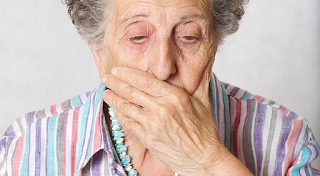Acute cholecystitis
Acute cholecystitis is an inflammation of the gallbladder, a small organ located below the liver that stores bile produced by the liver. This condition is usually caused by a blockage in the ducts that drain bile out of the gallbladder, which can be caused by gallstones. Symptoms of acute cholecystitis include severe pain in the upper right abdomen, nausea, vomiting, and fever. Treatment usually includes antibiotics and surgery to remove the gallbladder. Acute cholecystitis can lead to serious complications such as a perforated gallbladder or bile duct infection if left untreated.
Nausea
Nausea is feeling like you want to throw up or feel sick to your stomach. It is a common symptom that can be caused by a wide variety of conditions such as infections, food poisoning, indigestion, pregnancy, certain medications, and motion sickness. Nausea can also be a side effect of some treatments, such as chemotherapy or radiation therapy. In some cases, the cause of nausea may not be known. But, it is important to consult your doctor if the nausea is severe or persistent, as it could be a symptom of a more serious underlying condition.
Upset stomach
It can be caused by many factors, such as eating too much or too much, eating spicy or fatty foods,
Many people experience occasional stomach upset, and it can be treated with over-the-counter medications such as antacids that neutralize stomach acid. In some cases, changing your diet or lifestyle habits can also help relieve symptoms. Drinking plenty of water, avoiding foods that trigger symptoms, and regular exercise can help. In some cases, if the upset stomach is caused by a medical condition, such as gastroesophageal reflux disease (GERD) or a peptic ulcer,
If your upset stomach persists or is accompanied by other symptoms such as fever, vomiting, or blood in the stool, it is important to consult a doctor as this could state a more serious underlying condition.
Burping, also known as belching, is the release of gas from the stomach through the mouth. It is a normal function that helps relieve discomfort caused by excess air or gas in the stomach. Belching is usually caused by swallowing air while eating or drinking, but it can also be caused by certain medical conditions, such as gastroesophageal reflux disease (GERD) or peptic ulcer disease.
Many people experience occasional belching, and it's usually nothing to worry about. But, excessive belching or belching that is accompanied by other symptoms such as heartburn,
To reduce burping, you can avoid foods that cause gas, such as beans, broccoli, and cauliflower, and eat smaller, more frequent meals. Avoiding carbonated drinks, chewing gum, or drinking through a straw can also help. Drinking peppermint tea or taking peppermint oil capsules can help relax your stomach muscles and release gas.
If you experience excessive or persistent belching, it is important to consult a doctor as this could say more serious.
Heartburn is a burning sensation that is felt in the chest, behind the sternum. It is caused by the reflux of stomach acid into the esophagus, the tube that carries food from the mouth to the stomach. The acid irritates the lining of the esophagus and causes a burning sensation.
Common heartburn triggers include eating fatty or spicy foods, drinking alcohol or caffeine, smoking, and certain medications. Being overweight, pregnant, and having certain medical conditions can also contribute to heartburn.
Heartburn can be treated with over-the-counter antacids or acid-reducing medications such as H2 blockers or proton pump inhibitors. Changing your eating and lifestyle habits can also help relieve symptoms. Avoiding foods and drinks that cause heartburn, eating smaller and more frequent meals,
In some cases, your doctor may recommend more testing, such as an endoscopy, to rule out any underlying conditions




Comments
Post a Comment